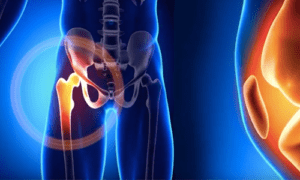
[Image from UMass Medical School]
“Our data shows it’s not necessary to ask patients to lose weight prior to surgery,” said Wenjun Li, lead author on the study and associate professor of medicine, in a press release. “It’s challenging for a patient who is severely overweight and suffering in pain to exercise – often they just can’t do it. Our evidence showed that severe morbidly obese patients can benefit almost equally as normal weight patients in pain relief and gains in physical function.”
The study was performed to evaluate what the pain relief and improvements were after total joint replacement surgery in patients who had varying levels of obesity. The researchers reported that obesity does have complications of its own early on in recovery, but overall should not be a deciding factor in getting total joint replacement surgery for painful arthritic hips and knees.
“In this paper we report that obese patients have comparable pain relief and functional outcomes after surgery,” said Patricia Franklin, professor of orthopedics and physical rehabilitation. “Patients should know that these benefits may outweigh risks.”
The study analyzed preoperative and six-month postoperative data from 2,040 patients who had total hip and knee replacement surgery and 2,964 who had total knee replacement surgery between May 2011 and March 2013. Researchers looked at how BMI status affected function and pain of the joints. The greater the obesity level, the worse the pain was at baseline. Postoperative pain relief was also greater.
“This surprised us a little bit. Past analysis showed that obesity is associated with outcomes to some degree, but here we see the magnitude is so small it won’t make much difference, and severely obese patients can benefit a lot from the surgery,” Li said. “Patients who can lose weight should, but we acknowledge many people can’t, or it will take a long time during which their joints will worsen. If they can get the surgery earlier, once function is restored, they can better address obesity.”
The study was funded by a $12 million grant from the FORCE-TJR research program. The FORCE-TJR program is also developing a national database of surgical results and patient-reported outcomes from more than 30,000 patients to figure out the best predictive models for total joint replacement outcomes.
“Our work demonstrates how data, especially patient-reported outcomes data in studies like FORCE-TJR, relates to individual health care decisions,” Li said. “It’s great to have something meaningful and useful to give back to patients thanks to those who participated.”
The research was published online in the Journal of Bone and Joint Surgery.
[Want to stay more on top of MDO content? Subscribe to our weekly e-newsletter.]




